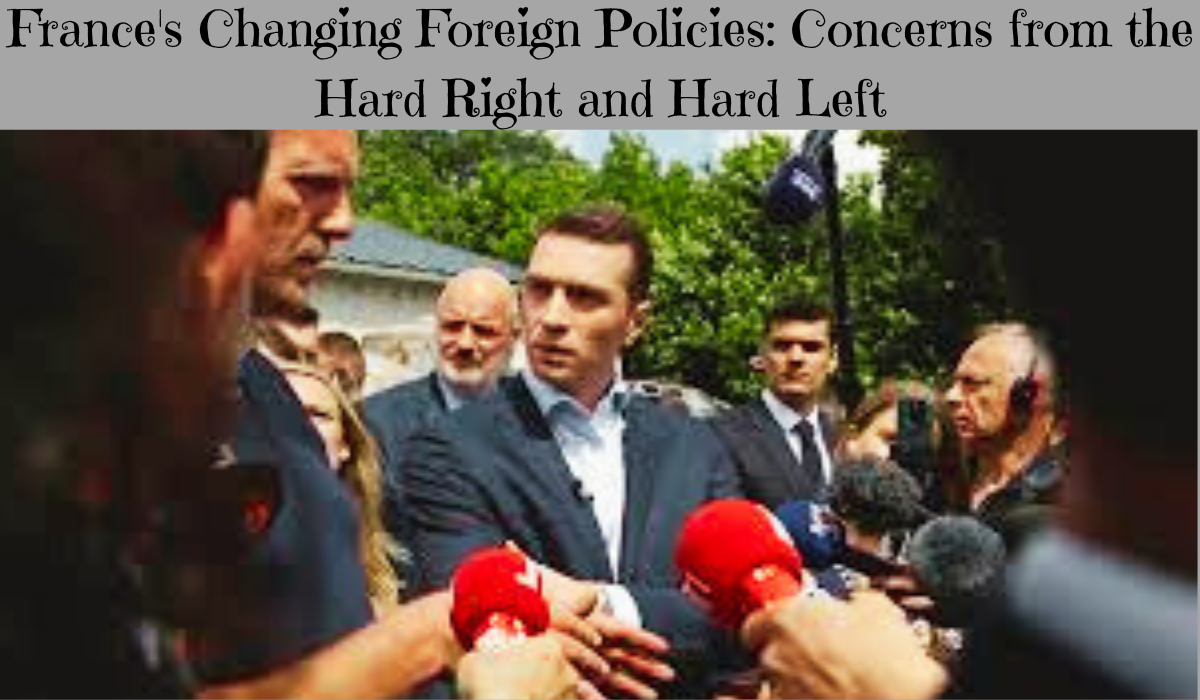France’s Changing Foreign Policies: Concerns from the Hard Right and Hard Left!

Background: France’s Role in NATO
Since 2009, France has been a key player in NATO’s integrated military command structure, a reversal from Charles de Gaulle’s decision in 1966. This shift has solidified partnership with the U.S. and the broader Atlantic alliance. French contributions include:
- Military Presence: Troops and fighter jets for alliance operations.
- Air Policing: Monitoring the eastern flank near Russia.
- Patrol Missions: Using manned aircraft over the Black Sea.
- Support for Ukraine: President Emmanuel Macron advocates for Ukraine joining NATO, training Ukrainian recruits, and providing French Mirage 2000-5 fighter jets.
Upcoming Election: A Turning Point
France’s foreign policy might face significant changes soon due to President Macron’s decision to call a snap parliamentary election on June 30th and July 7th. This unexpected move has created uncertainty about future commitments.
Election Details
- Current Polling: A recent Ifop poll on June 24th shows:
- Marine Le Pen’s National Rally (RN): Leading with 36%.
- Left-Wing Alliance (New Popular Front or NFP): At 29.5%.
- Macron’s Centrist Group: Lagging at 20%.
Possible Foreign Policy Changes
National Rally (RN)
Marine Le Pen’s National Rally, representing the hard right, could significantly alter its current foreign policy:
- NATO Skepticism: Le Pen has expressed doubts about NATO and might reduce France’s involvement in alliance activities.
- Pro-Russia Stance: Historically, RN has shown a more favorable view towards Russia, which could affect France’s current support for Ukraine .
New Popular Front (NFP)
The New Popular Front, a left-wing alliance, also presents a challenge to the current foreign policy:
- Anti-Atlanticism: The NFP is generally critical of NATO and may push for France to distance itself from the U.S. and the alliance.
- Focus on Domestic Issues: They might prioritize domestic policies over international military engagements.
Macron’s Position
If Macron’s centrist group remains in a weak position, maintaining current policies may be difficult:
- Pro-European Stance: Macron’s policies have been firmly pro-European, supporting NATO and strong alliances with other European countries.
- Support for Ukraine: He has been vocal about aiding Ukraine and integrating it into NATO.
Conclusion
France’s upcoming election could lead to significant changes in its foreign policy, particularly regarding NATO and relations with Russia. The hard right and hard left pose potential challenges to the current pro-European and pro-NATO stance that has defined France’s role since 2009.
Table of Contents
References:
- France’s Role in NATO: The Economist
- Election Polls and Impact: Reuters
- Potential Foreign Policy Changes: BBC



7 thoughts on “France’s Changing Foreign Policies: Concerns from the Hard Right and Hard Left!”